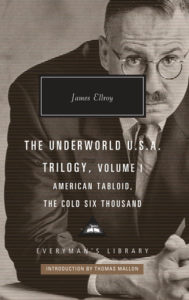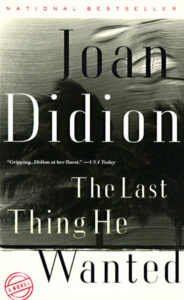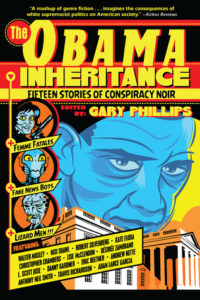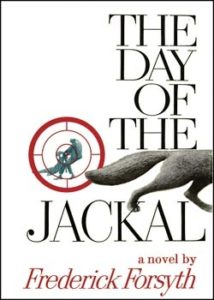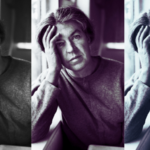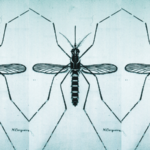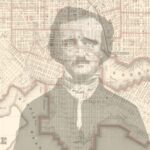Conspiracies and crime fiction go hand-in-hand and always have. Occam’s Razor occasionally applies, but more often than not, whether you go for traditional mysteries, hardboiled noirs, or socially conscious epics, the answer to the riddle is more complex than you imagined, burrowing deeper into the human soul and encompassing more players, more motivations, more mechanisms than anyone (except maybe your detective) believed possible. Or at least that’s how I like my crime stories. There’s something special about a book that can take real-world events and figures and weave them together with fictional machinations and characters to give us something that feels like a genuine piece of insight—a glimpse into a more authentic reality.
This is a strand of crime fiction born of the paranoid thrillers of the 1970s and is not to be confused with the ham-fisted theories you come across on the internet. These are deeply felt, deeply imagined worlds with a truth of their own. It all adds up to a literature caught somewhere between fact and fiction, known and unknown, mystery and solution. James Ellroy may be the king of these alternate history / conspiracy crime fictions, but there’s a long fine tradition here touching on all manner of political figures and events.
Here I’ve collected 11 of the very best crime fictions and mysteries that take real-world political events and figures and weave them into complex conspiracy narratives that are guaranteed to disturb your sense of history and reality.
James Ellroy, Underworld USA Trilogy
Ellroy’s retelling of American history between 1958 and 1973 is fiction, absolutely, and paranoid, without a doubt, but anyone who’s dug into these thousand plus pages can’t help but come away feeling like they’ve been tapped into the period’s mainline and been offered rare insight into what was really going on. Ellroy’s vision is deeply sinister, with the CIA, J. Edgar Hoover’s FBI, the Mafia, and a mishmash of extremists fingered for just about every major political scandal/tragedy in mid-century politics, including the assassinations of JFK, RFK, and MLK. In this telling, government agencies are diffuse and self-serving organizations always on the lookout for the next opportunity, populated by schemers and true believers alike, all carrying on without any mind for the law, all in the name of the fight against communists real and imagined.
Antonio Muñoz Molina, Like a Falling Shadow
Part true crime, part historical fiction, with a dash of forensic analysis and a more than healthy dose of postmodernism, Muñoz Molina’s learned, manic recreation of James Earl Ray’s ten-day fugitive stint in Lisbon is not so much conspiracy noir as a crazed curriculum vitae. He details Ray’s readings and movements in agonizing detail, then brings his own Lisbon journeys into the mix, creating a hybrid work that illuminates and reflects its subject’s mind and his dark legacy.
Laurent Binet, The Seventh Function of Language
Binet’s most recent work takes the form of a detective novel, with the death of the great French intellectual Roland Barthes at its center. As the title suggests, the nature and use of language is the book’s real subject. Even with heavy philosophical issues at play, the story is almost light as air, as the action follows a Parisian detective under pressure from the highest rungs of government, the university professor he ropes in as his sidekick, and the young working boys who frequent the city’s bathhouses and cafes, turning tricks and mingling with lefty superstars. Binet’s novel is a swirl of symbols, masks, schemes, codes, figures, and, most of all, ideas.
Joan Didion, The Last Thing He Wanted
That’s right, Joan Didion wrote an international thriller. Sort of. In this underrated 1996 novel, Elena McMahon, a Washington Post reporter covering the Reagan-Mondale campaigns, leaves her job and heads to Central America, where she somewhat mysteriously finds herself taking over her father’s work. The family business is arms trading, specifically supplying arms to the many factions fighting in the jungles at the behest, in opposition to, or simply in the mess created by the US government. Didion had a longstanding interest in the region, and in this novel, channels that interest into a taut and subtly affecting novel about generational legacies.
Gary Phillips (ed), The Obama Inheritance
Phillips’ 2016 story anthology asked fifteen writers to each pick one of the bizarre conspiracy theories that cropped up during the Obama years and “[r]iff on it, take it apart and turn it on its head, and give the reader a thrill ride of weirdo, noirish, pulpy goodness.” The result is one of the best and certainly strangest collections in recent memory, with an absolute onslaught of false documents, spies, shadowy cabals, government agents, arch criminals, and alien invaders. There are standout stories, like Walter Mosley’s or Phillips’ “Thus Strikes the Black Pimpernel” but really the best way to come at this volume is cover-to-cover, embracing the insanity and thinking back to a time when our country’s conspiracies were pure fiction.
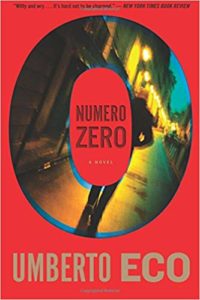
Umberto Eco, Numero Zero
Nearly all of Eco’s books could be included on this list, so fascinated is the Italian novelist and scholar with the tangle of lies, misunderstandings, and frauds that get passed down in the historical record. But his latest novel tackles the conspiracy theory phenomenon with a laser focus. In Numero Zero, the staff of a trashy Italian tabloid called Domani (owned by a Berlusconi-like leader) crank out false and increasingly outlandish stories. Not only is Mussolini alive and well in the countryside, but his survival is also connected to Vatican financial scandals, Papal deaths, and various extremist organizations. Amidst the cacophony and esoterica, Eco brings his usual insight into modern existence, not to mention a wicked satire of modern Italy.
Henning Mankell, The White Lioness
Something of an outlier among the Wallander novels, The White Lioness offers plenty of Scandinavian disaffection through the eyes of the prickly and beloved detective, but also takes readers to the southern reaches of Africa, where white supremacist apartheid-nostalgic extremists are plotting to kill Nelson Mandela. Wallander’s investigation in Sweden plays out on another plane, following the would-be assassin’s training period and a mysterious death in the aftermath. The intercontinental ties are foggy and insidious; that is, perfectly suited to Wallander.
Don DeLillo, Libra
DeLillo’s speculative look inside the mind of Lee Harvey Oswald still sends chills down the spine. His Oswald is no madman nor a simple stooge, but a resolved, if unsophisticated communist who has immense difficulty connecting with society, including his own family. DeLillo take us through the assassin’s military training and his sojourn to the Soviet Union, then back to the States where the plot begins to unfold. DeLillo never offered up his novel as an accurate account of the facts, yet his portrait of Oswald has undeniably helped shape posterity’s view.
Frederick Forsyth, The Day of the Jackal
A classic of the genre, Forsyth’s novel 1971 novel was based on more than speculation about the would-be assassins of French president Charles de Gaulle. In fact, Forsyth was there on the ground in the summer of 1962 when a right-wing extremist group known as the OAS made one of its most brazen attempts on the General’s life. Those events inspired Forsyth’s international bestseller, in which the OAS, irate with de Gaulle for granting Algerian independence, but stymied in its own assassination attempts, hires an outside expert to take on the contract. Almost half a century on, the novel still stands as one of the world’s most popular thrillers.

Stephen King, 11.22.63
King’s alternative history / conspiracy / sci-fi epic is a truly mind-bending novel, with Jake Epping, a local high school teacher in Maine, discovering that his diner’s pantry is also a time travel vessel that delivers him to September 9, 1958, at which point he can struggle to change historical events, including JFK’s assassination, but only against the dimension’s stubborn efforts to stop him. The story is guaranteed to alter perceptions and call into question the supposedly linear march of history, especially when you decide that time itself is a co-conspirator.
Lou Berney, November Road
The most recent addition to the list and a perfect complement to Ellroy’s vision of the JFK assassination and its aftermath, but instead of spiraling out into more and more intricate webs of conspiracy and geopolitical maneuverings, Berney’s story burrows inward, focusing on one relationship in this strange tumultuous period. November Road begins with a mid-level criminal in New Orleans who finds he’s been made to play an incriminating role in the assassination, which prompts him to go on the lam, where he meets up with another lost soul of a different sort, and the two of them push on across a vivid and fraught American landscape: a conspiracy novel crossed with a road trip novel, which adds up to a particularly potent brand of “chase novel.”


